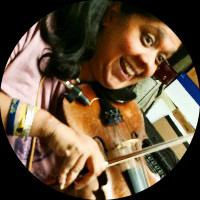30 years and still so much more to do.
- Priya Ray

- Jul 5, 2020
- 8 min read
Life in a wheelchair
We will be celebrating the 30th anniversary of the ADA on July 26. When I think about commemorating the beginnings of the ADA, I cannot help but wonder why it took that long for People Living with Disabilities (PLD) to get these rights. Simply because the narratives of disability were not written about does not mean they did not exist.
I think we know our stories have existed as long as humans have. Then I also think while a lot of progress has been made in those 30 years, a lot has not. Why? Is it because unlike the history of the race, gender, and sexual identity our history is invisible? This year, February 2020, marks the 21st anniversary of my spinal injury. Long before I was forced into the life I have now, I was always a person who consciously observed the world around me. In these last 21 years, I have observed a lot about the life of living with a disability. Some good, some bad. I was never a person who was truly accepted by my peers. Growing up, I moved a lot. I was constantly the new kid. Combined with being Indian American, I was always alone. Slowly, this led to me being an unintentional outsider. Back then, I hated it. I wanted to have friends. I wanted people to like me. I wanted to hang out with all those people at the lunch table that were laughing and having a great time. The problem was they did not want to include me. As I grew older, I found my own footing. I began to not care about fitting in. I started to play music and art. I began to have confidence and pride in myself. I met people who included me without question. Then I fell and had a spinal injury.
I acquired a disability and became a wheelchair rider. I woke up to paralysis and very quickly began to observe that I once again did not fit in. After I had my injury, I was fortunate to have the support of my family—a father who constantly told me how I could still do anything I wanted despite my disability and a mother who set an example of acceptance, patience, and resilience. She had been disabled all my life and she continued to cook, clean, and travel the world! She did the most she could do. I also had a lot of friends and family who called. I was so grateful for this because after I became injured, I was literally air-lifted out of the life I once had. I was very active in my community. I played in a band, made art, supported, and helped cultivate a scene. I went from this culturally rich life, surrounded by people, to living in my parent’s basement. Robert, my long-time partner, and bandmate, also came with me but he had to work. I was alone quite often, so it was nice to have people to talk to. As the months went by, I slowly became comfortable as a person living with a disability. It wasn’t easy to re-learn how to brush my teeth, use the toilet, take a shower, put on clothes, get out of bed, get in bed, and manage to have no bladder or bowel control. I had to learn how to live again. Despite the situation, I came out of it very calm, happy, and ready to conquer the world!
When my relatives or old friends would see me, they would quite often share how amazed they were at my positivity. The positivity came to me naturally. It wasn’t something I had to struggle to acquire. When I would go hang out with a group of people, I often found myself saying, “What’s going on? I’m the one who's paralyzed and I’m the happiest person in the room!” It’s not necessarily true, I’m not always happy, but when I make an effort to go out into the world and believe me it is an effort, I want to enjoy myself. I am so lucky that I can always get lost in the moment no matter what’s happening. Having this positive attitude is great for me and my mental state, but there are some negatives to this blessing. Quite often, because of my natural positivity, people forget I am a person that lives with a disability. On a certain level that actually makes me happy but on another level, it deeply saddens me. Do I have to fit into the stereotype of what a person with a disability is—depressed, angry, helpless—for people to actually acknowledge my disability? I want to make it clear what I mean when I say acknowledge. · When you go to a show to watch a band and the space is completely inaccessible. Sitting in a corner alone watching all the people walk by you with their beer saying hi and not one them saying, “Hey, do you want to see the band? Let’s clear space for you to do that.” · When you are taking portraits to raise money to get a van so you can increase the independence of your life and, due to your disability, you cannot get the lighting right. Suddenly, you see a friend walk in and you are so happy because you think they can help. You ask them to take a test photo. You do it and that person looks at it and says, “Oh god! You made me look like Stephen Hawking’s mother! Haha!” and walks away instead of saying “Hey, it looks like you are having a hard time. The lighting is harsh. Can I help you set up your lights?” · When, after overcoming the obstacles of being disabled to play in a DIY band, you travel to a town where everyone knows you are in a wheelchair and there is no ramp for you to get in or out of the space you are playing. Not one person even thought of it. Then your bandmate calls to complain about how your partner upset some people because he was vocal about the lack of awareness or empathy towards your situation. At that moment it would have been really nice to hear, “I am so sorry there wasn’t a ramp there for you. That must have really been hard for you. Next time, we’ll make sure that doesn’t happen.”
When your family and friends know you suffer from great amounts of pain but because they do not what to say, they just don’t call, leaving you alone and isolated. Which when you are in pain, is especially heartbreaking. Pain. I have it every day of my life. But like my mother, I choose to do everything I can despite it. I wake up barely able to move my body, wishing that I only had paralysis. Paralysis, for me, was not something that was impossible to overcome. But pain? Pain is a completely different game. When there are no solutions, you have to make a choice. Will I let this pain completely smother everything I want to do, or do I want to enjoy everything I can? Unlike other types of pain, my pain is from nerve damage—specifically neuropathy and spasticity. There is no real cure for this. After wasting many years with the medical-industrial complex to try to find a way to manage this pain, I finally decided that I am not waiting for a solution or cure. I will push past this pain and do whatever I can. I do not waste time on the idea of trying to remain “positive about it all” because my pain is not positive. My body hurts. The intensity of it keeps me from doing everything to my complete tasks and be at my fullest potential. This makes me both really sad and it pisses me off—and that is ok. Nobody will ever find the complete package, a world where sadness, anger, and all the emotions in between do not exist.
The modern thought of trying to fix a person with drugs because they are unhappy for an actual reason is wrong and unhealthy. The “remaining positive” dilemma does not only affect PLD, it has become ingrained as part of the modern human condition. The human condition. We, like all animals, instinctively look at people that are different from us and form opinions based not only on the color of their skin, their gender, their religion, their sexual preference or identity, and their ability but also on things like financial status, fashion, and even the food they choose to eat.
In the United States, we are seemingly very lucky to live in a country that has laws like the Right to Vote Act and the ADA to protect the Civil Rights of our citizens. The ADA specifically protects the rights of any PLD so they can have the independence and opportunities they need. These are opportunities available to the able-bodied on a regular basis so that the luxury of having that ability is actually taken for granted.
How would an able-bodied person feel if they were physically stopped from participating in their community? In their world? This happens to PLD every day. When all you are greeted by are broken curb cuts, inaccessible businesses, or people parking in the accessible spot to pick up their pizza or get a cup of coffee, it makes you realize how much society does not include you or truly acknowledge your disability. WE ARE INVISIBLE! Having laws is one thing. Abiding by them and expressing concern for your fellow humans is another. I do not want to give the impression that I do not have friends and family who have gone way beyond my expectations for me in these years but from my experiences living life as a person with a disability, I start wondering about humans. We’re the only species that are born a certain way and then try to correct our behaviors or actions. Throughout our history we have protected women and children, spoke up when one human oppresses another. Most importantly, we have found ways to save lives, achieve longevity, and conquer fatal diseases. If this was 50 years ago, I certainly would have not lived. It is because of this drive for us to live longer and have stronger lives, we have essentially created a larger community of People Living with Disabilities. We pat ourselves on the back at what a great job we do saving these lives but really, what good is it to save people’s lives and then not support them to be able to live? People Living with Disabilities, like every person that is oppressed, are constantly accepting the bad with the good and asking, “How do I fit in the world? What is my place here?” “If I’m stopped by police will they recognize I have a disability? Or will they mistake my actions and arrest, hurt, or worse, kill me?” At some point you have to make a decision: “Do I want to fight for the rights of all humans?” Yes! Then that fight becomes your life purpose. This how the fight for everyone’s equality is achieved. As an Indian American female, I certainly understand the isolation that can occur because you do not have the right color skin or are not the correct gender. But I have never felt so unwanted as I have as a person living with a disability. I think that this really needs to change. My question is how?


























Comments